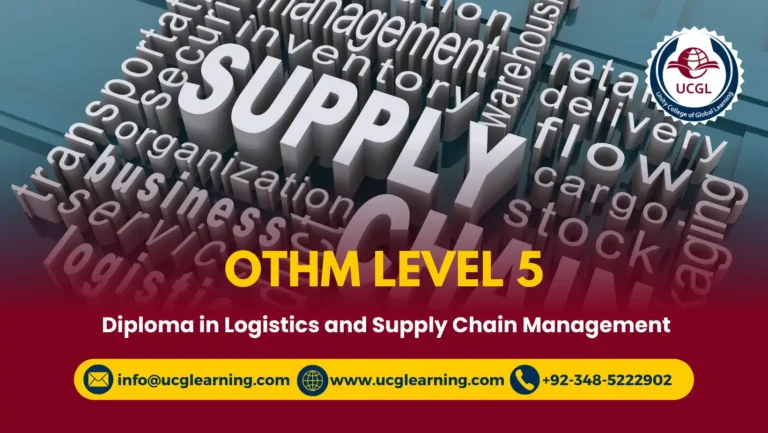OTHM Level 3 Foundation Diploma in Information Technology
The Level 3 Foundation Diploma in Information Technology offers a comprehensive introduction to the world of IT. This course covers a broad range of topics, ensuring students gain a well-rounded understanding of key IT principles and practices. The curriculum is designed to be both practical and theoretical, preparing students for further education or entry-level positions in the IT industry.
Course Introduction
In today’s digital age, information technology (IT) plays a crucial role in almost every industry. The Level 3 Foundation Diploma in Information Technology is designed for those looking to build a solid foundation in IT, providing the essential skills and knowledge needed to excel in this dynamic field. Whether you’re a school leaver, a professional seeking a career change, or someone looking to formalize your IT skills, this diploma is an excellent starting point.
Course Benefits
- Solid Foundation: Gain a strong understanding of fundamental IT concepts.
- Practical Skills: Develop hands-on skills that are directly applicable in the workplace.
- Career Opportunities: Open doors to various entry-level positions in the IT sector.
- Further Education: Provide a stepping stone for higher education in IT or related fields.
- Versatility: Acquire skills applicable across multiple industries.
Course Study Units
- Computer Systems (10 credits)
- Coding and Website Development (10 credits)
- Networks (10 credits)
- Mobile Communications (10 credits)
- Cyber Security (10 credits)
- Social Media for Business (10 credits)
Learning Outcomes
- Computer Systems (10 credits)
- Explain the fundamental components and architecture of computer systems.
- Demonstrate proficiency in installing, configuring, and troubleshooting computer hardware and software.
- Analyze the performance and optimization techniques of computer systems.
- Evaluate the impact of emerging technologies on computer systems.
- Coding and Website Development (10 credits)
- Write and debug code using programming languages relevant to web development.
- Design and develop interactive and responsive websites and web applications.
- Implement secure coding practices and techniques.
- Demonstrate proficiency in version control and collaborative software development tools.
- Networks (10 credits)
- Describe the principles and protocols of computer networks.
- Design and configure local area and wide area networks (LANs/WANs).
- Analyze network performance and troubleshoot connectivity issues.
- Evaluate network security measures and implement appropriate defenses.
- Mobile Communications (10 credits)
- Explain the architecture and operation of mobile communication systems.
- Develop mobile applications for different platforms.
- Evaluate the impact of mobile technologies on business and society.
- Implement mobile communication protocols and standards.
- Cyber Security (10 credits)
- Identify and assess security threats and vulnerabilities in computing systems.
- Implement security controls and measures to protect against cyber attacks.
- Analyze and respond to security incidents and breaches.
- Develop and recommend security policies and procedures.
- Social Media for Business (10 credits)
- Analyze the role of social media in business marketing and communication strategies.
- Develop and implement effective social media campaigns.
- Evaluate metrics and analytics to measure the effectiveness of social media efforts.
- Manage online reputation and respond to social media crises.
These learning outcomes are broad examples and can be further refined based on specific course objectives and curriculum requirements. They aim to articulate the knowledge, skills, and abilities that students should acquire upon completing each respective unit of study.
Who Is This Course For?
This course is ideal for:
- School Leavers: Individuals who have completed their secondary education and are looking to pursue a career in IT.
- Career Changers: Professionals seeking to switch to the IT field from a different career path.
- IT Enthusiasts: Individuals with a keen interest in technology and a desire to formalize their knowledge.
- Prospective Students: Those planning to pursue higher education in IT or related disciplines.
Future Progression
Completing the Level 3 Foundation Diploma in Information Technology opens up several pathways for future progression:
- Higher Education: Enroll in advanced IT courses such as Level 4 and Level 5 diplomas, undergraduate degrees, or specialized IT certifications.
- Employment: Qualify for entry-level positions such as IT support technician, junior programmer, network technician, or database administrator.
- Professional Development: Continue developing your skills with professional certifications in specific IT areas, such as CompTIA A+, Cisco’s CCNA, or Microsoft Certified Solutions Associate (MCSA).
The Level 3 Foundation Diploma in Information Technology is a versatile and valuable qualification for anyone looking to build a career in IT. With its comprehensive curriculum, practical focus, and broad applicability, this course provides the perfect stepping stone into the dynamic world of information technology. Whether you’re starting fresh or looking to shift gears in your career, this diploma offers the knowledge and skills you need to succeed.







